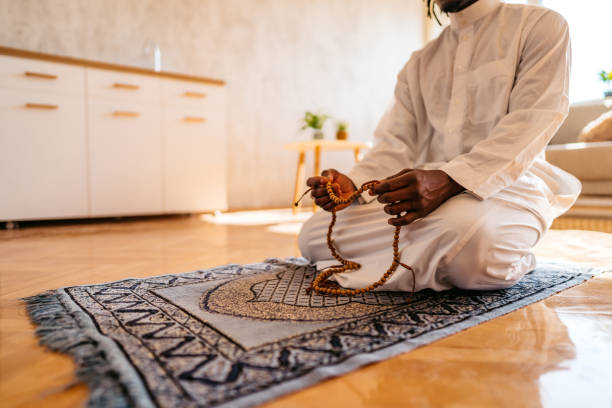‘O! Allah rescue us from this village the inhabitants of which are unjust; and raise for us from thyself a friend; and raise for us from thyself a helper’ (Quran 4: 75)
Give the above verse of the Qur’an the interpretation that catches your fancy, be it that which you draw from the exegetical posture of Al-Tabari or the hermeneutical postulations of Ibn Kathir, I, however, chose to begin this essay with yet another. In Surah 60, and in what I call an uncanny supplicatory-admonitory style, a style which combines pedagogy with spirituality, Allah draws our attention to one of the ways of those who came before us. The latter, and you must keep this in mind, featured Prophet Ibrahim (upon him be peace). The latter, used to supplicate thus says: ‘Oh! Allah do not make us a source of temptation for those who do not believe and forgive us O! Allah, for you are the Mighty and owner of wisdom”. Each time I perused the Qur’an, each time I arrive at this shore in my daily interactional dialogue with the last testament, I always wondered how could a Muslim be a source of temptation for the unbelievers. How could I become like the violent crocodile in the only stream in the “village” which prevents the weak and the strong, the young and the old, from accessing water. How could I become like the crocodile in the only stream in the village which constantly threatens to pollute the stream with its venom. Or how could a Muslim who, in line with the Qur’anic destiny, should be the salt of the world, become a virus, a poison? Invariably, I sought exemplification of the above verse from those who were closer to the fountain of Islamic heritage. I pleaded my ignorance of the true import of this verse in the presence of my forebears.
In other words, face to face with the violent Muslim who, like Nimrud, appropriates the right of Allah to give and take life- Muslims who operate with the notion that their understanding of Islam is the ONLY valid perspective available; face to face with Muslims who have forgotten that Islam at peace has historically been more productive and attractive than Islam at war; face-to-face with the apparently backward Muslim Ummah which suffers poverty in the midst of plenty, the perceptive non-Muslim by-stander will always wonder whether the necessity is actually there for him to consider the possibility of accepting Islam. He begins to evolve a link between the grim existential reality of Muslim life and the scriptural foundations upon which the religion of Islam is predicated. It is based on this reading of the above verse that a Muslim becomes a source of fitnah for the non-Muslim. It is sequel to this hermeneutic approach to the above verse that he becomes the honey in chronic lack of sweetness; the salt which has become sour to taste.
One of the greatest sources of concern for discerning Muslims in the contemporary period is the hiatus in the sphere of leadership in the Muslim world. Whenever our Prophet, (may Allah’s mercies and benedictions be on his soul) sent his companions on a mission or an expedition, he would appoint someone as their commander. The criteria he usually deployed to this process were basically the appointee’s ability and also mutual love and respect between him and the group he would be commanding. He would proceed from there to enjoin the group to obey their leader so that their mission would be successful. Should they have divergent aims and follow different methods, they were bound to fail, he would counsel.
Further Prophet Muhammad was always keen to instill the above virtue among Muslims, regardless of their positions. He once said: “Every one of you is a shepherd and will be accountable for his flock. The ruler is a shepherd and will be accountable for his community; a man is a shepherd of his family and will be accountable for them; a woman is a shepherd of her husband’s household and will be accountable for her charge; a slave is a shepherd looking after his master’s property and will be accountable for it: indeed, every one of you is a shepherd and will be accountable for what is under their care.” When everyone in a community develops such a sense of responsibility, the affairs of the community will run smoothly and everyone will have what is due to them. Indeed, this virtue usually helps in developing a feeling of love and unity within the community; it ensuring its success and prosperity. He equally said, in reference to Allah: “My servants, I have forbidden Myself injustice and made it forbidden for you. Therefore, be not unjust to anyone.” These codes represent the foundation and the canon of Islamic political system. Its absence is usually a recipe and catalyst for political anomie, civil strife and disharmony.




